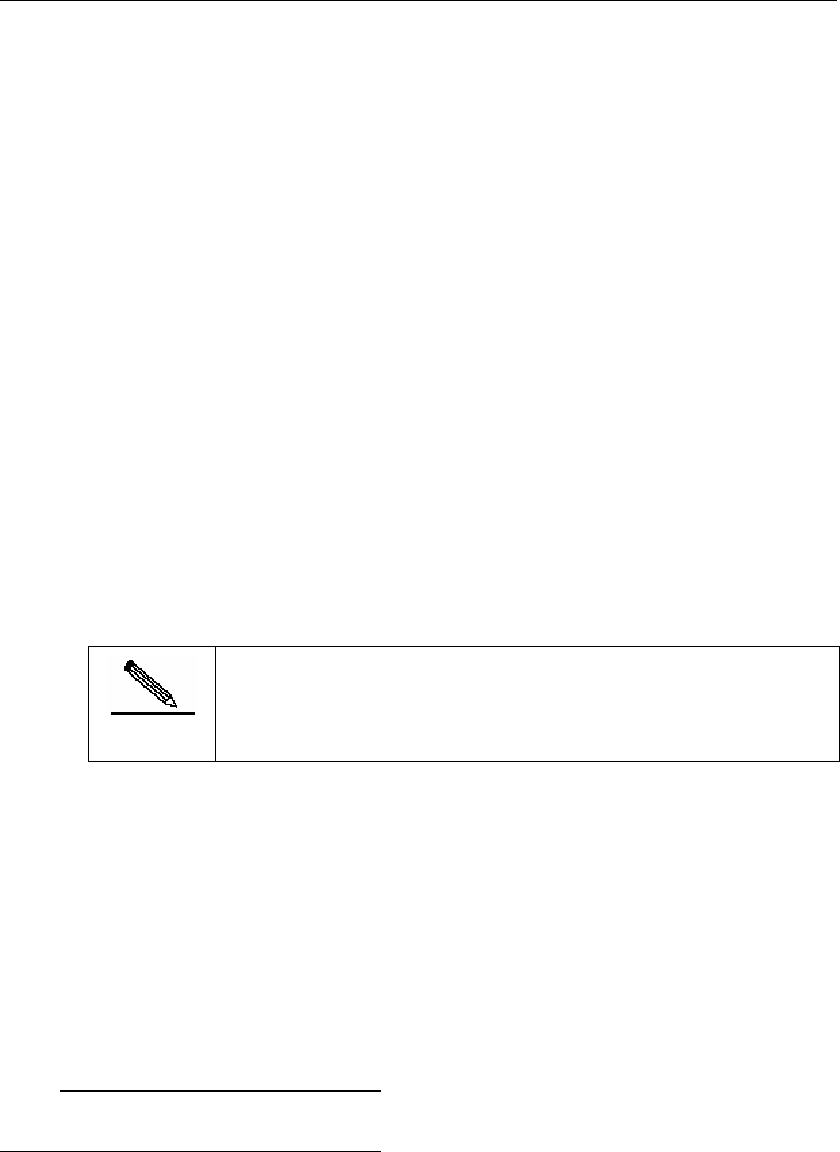
DES-7200 Configuration Guide Chapter 7 DHCPv6 Server Configuration
7-2
The DHCPv6 protocol (Dynamic Host Configuration Protocol for IPv6) as defined in
RFC3315 allows the DHCP Server to send configuration parameters such as IPv6
address to IPv6 nodes, and also allows flexible assignment and reuse of network
addresses.
4. DHCPv6-PD
The DHCPv6-PD (DHCPv6 Prefix Delegation) as defined in RFC3633 is an extension
of DHCPv6. In typical DHCPv6 application, DHCPv6 Server will assign stateful IPv6
address to a DHCPv6 Client. As an extended feature, DHCPv6-PD Server can assign
a complete subnetwork and other network and interface parameters to DHCPv6-PD
Client through Prefix Delegation message.
5. Stateless DHCPv6
Stateless DHCPv6 integrates the features of stateless address auto-configuration
and stateful DHCPv6. The device can use stateless address auto-configuration to
acquire IPv6 address, and utilize DHCPv6 to acquire more parameters in the mean
time. These parameters cannot be provided through stateless address
auto-configuration. The device may use such information to complete all
configurations.
Note
Under certain circumstances, in network planning, the
aforementioned IPv6 address and parameter allocation methods
can be used simultaneously.
DES-7200 DHCPv6 Server supports the assignment of IPv6 address and prefix. IPv6
address assignment refers to the auto-configuration of IPv6 address for DHCPv6
Client, while prefix assignment allows flexible site-level auto-configuration to control
the site address space. Network terminals such as PC can combine stateless
auto-configuration or stateful auto-configuration to achieve the auto-configuration of
address and other network parameters. DES-7200 DHCPv6 Server also supports
DHCPv6-PD Server expansion (hereafter referred to as DHCPv6 Server).
7.1.2 Basic Concepts of
DHCPv6 Server
7.1.2.1 DUID
DUID refer to DHCP Unique Identifier. As clearly defined in RFC3315, each DHCPv6
device (including client, relay and server) must have a unique DHCPv6 identifier for
mutual authentication during the exchange of DHCPv6 messages. Furthermore,
DUID cannot be used for other purposes. For all DHCPv6 devices, DUID must not be
reused and shall be stable to any device (i.e., the DUID of a device must not be
changed due to the replacement of certain part). The length of a DUID must not
exceed 128-byte, and there are three types of DUIDs:


















